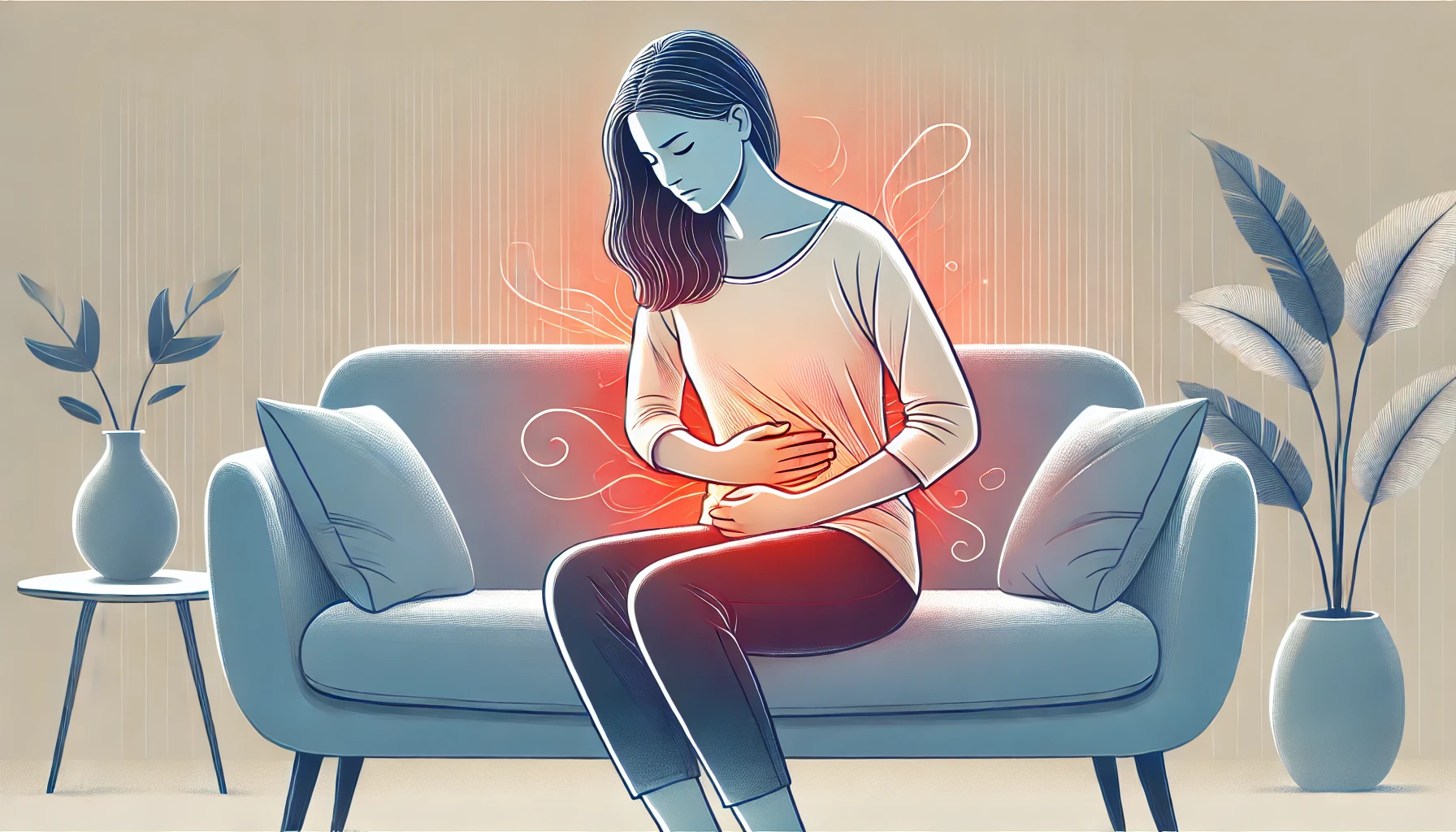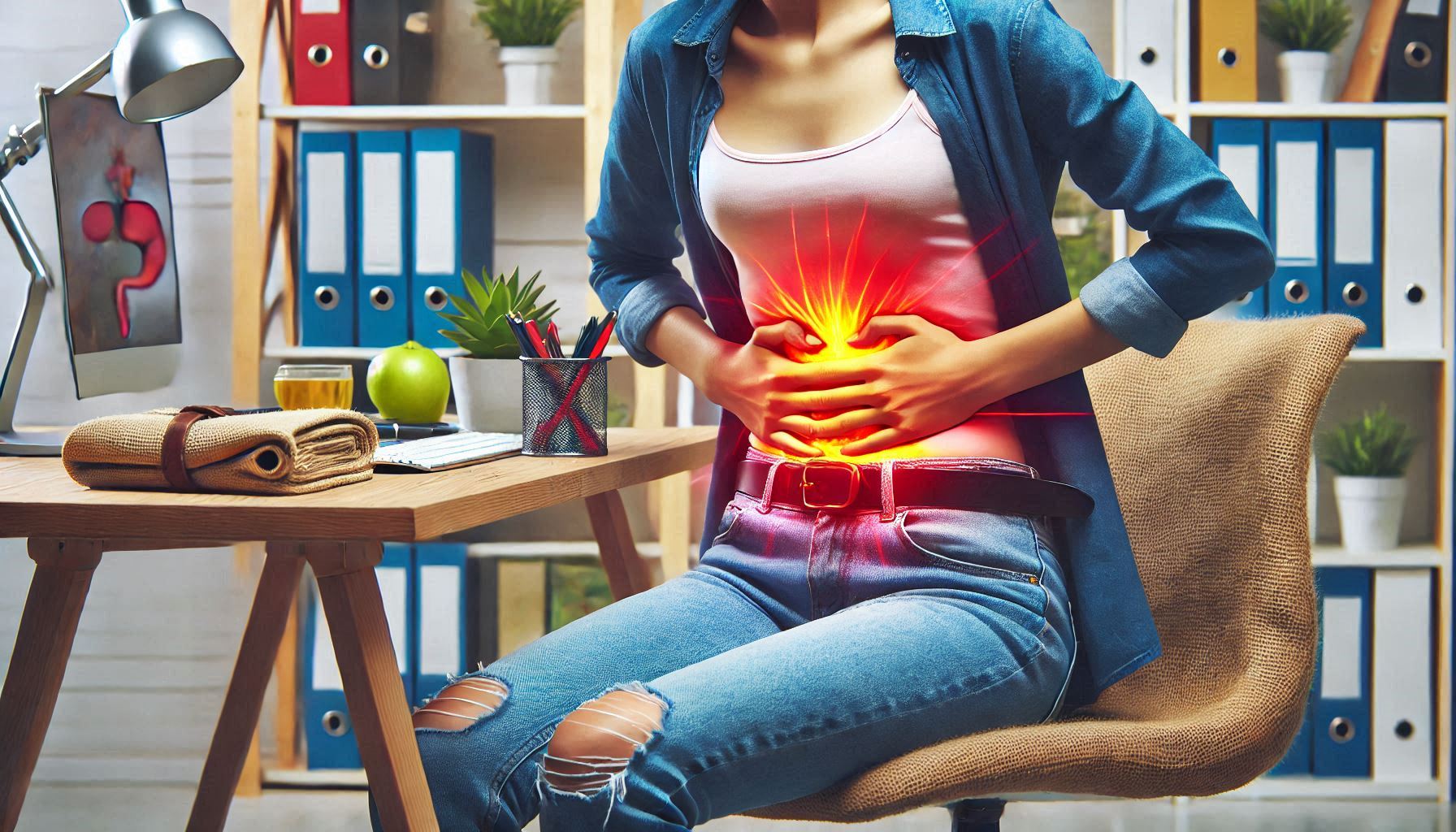Understanding and Managing Stomach Pain: Causes, Prevention, and Treatment Author: ItHurts.com A Comprehensive Talk on Say Goodbye to Stomach Pain Understanding the Basics: Stomach pain, also referred to as abdominal pain, is one of the most common ailments affecting people of all ages. From a fleeting discomfort after a heavy meal to chronic pain signaling a deeper issue, stomach pain can vary widely in intensity, duration, and underlying causes. This comprehensive guide will delve into the types of stomach pain, their causes, and actionable strategies to alleviate and prevent them. Types of Stomach Pain and Their Characteristics Stomach pain manifests in various ways depending on its cause. Understanding the characteristics can help identify the issue and seek appropriate care. Sharp Pain – Description: Sudden, intense pain that may feel like stabbing or piercing. – Location: Often localized to one area, such as the upper right abdomen (e.g., gallbladder issues) or lower right abdomen (e.g., appendicitis). – Intensity: High and typically short-lived, though it may recur. Cramping Pain – Description: A wave-like pain that comes and goes, often linked to digestion. – Location: Generalized across the abdomen or lower abdomen. – Intensity: Mild to moderate, but can escalate during episodes. Burning Pain – Description: A searing sensation often associated with acid reflux or ulcers. – Location: Commonly felt in the upper abdomen or behind the breastbone. – Intensity: Moderate to severe, exacerbated by certain foods or lying down. Dull Ache – Description: Persistent, low-grade pain that may last for hours or days. – Location: Diffuse or in specific areas. – Intensity: Mild but uncomfortable and distracting. Common Causes of Stomach Pain Stomach pain can stem from a wide array of causes, ranging from minor to severe. Here are the most common culprits: Indigestion and Gas – Triggered by overeating, spicy foods, or carbonated drinks. – Causes bloating, discomfort, and a feeling of fullness. Gastrointestinal Infections – Result from consuming contaminated food or water (e.g., norovirus, salmonella). – Symptoms include diarrhea, vomiting, and cramping. Irritable Bowel Syndrome (IBS) – A chronic condition causing abdominal cramping, bloating, and irregular bowel movements. Acid Reflux and GERD – Caused by stomach acid flowing back into the esophagus. – Symptoms include a burning sensation and pain after eating. Ulcers – Open sores in the stomach lining caused by H. pylori bacteria or NSAID overuse. – Pain often worsens on an empty stomach. Appendicitis – Inflammation of the appendix, causing severe pain in the lower right abdomen. – Requires immediate medical attention. Gallstones – Hardened deposits in the gallbladder causing sharp pain in the upper right abdomen. – Often triggered by fatty meals. Underlying Reasons for Stomach Pain Muscle Strain Abdominal muscles can strain from heavy lifting, intense exercise, or sudden movements, leading to localized pain. 2. Nerve Compression Nerve issues, such as those from herniated discs in the spine, can sometimes refer pain to the abdomen. 3. Digestive System Issues Inflammation, infection, or blockages in the gastrointestinal tract can result in stomach pain. 4. Organ Dysfunction Malfunctioning organs like the liver, pancreas, or kidneys can produce pain that radiates to the abdomen. How Stomach Pain Typically Presents Itself – Onset: Can be sudden or gradual, depending on the cause. – Duration: Acute pain lasts hours to a few days, while chronic pain persists for weeks or months. – Pattern: Intermittent (comes and goes) or constant. – Associated Symptoms: May include nausea, vomiting, fever, diarrhea, or changes in bowel habits. Treatment and Relief for Stomach Pain Lifestyle Changes – Eat small, frequent meals to avoid overloading the stomach. – Avoid trigger foods like spicy, greasy, or acidic dishes. – Stay hydrated to promote healthy digestion. 2. Exercises and Stretches – Child’s Pose: Relaxes the abdomen and eases cramping. – Knee-to-Chest Stretch: Helps relieve gas and bloating. 3. Self-Massage Techniques – Use gentle circular motions on the abdomen to stimulate digestion and reduce bloating. 4. Holistic Approaches – Herbal Teas: Ginger and peppermint tea soothe nausea and cramping. – Probiotics: Promote a healthy gut microbiome. 5. Medical Treatments – Over-the-Counter Remedies: Antacids, simethicone, or loperamide for gas, acid reflux, or diarrhea. – Prescription Medications: Antibiotics for infections or proton-pump inhibitors for GERD. – Surgery: For severe cases like appendicitis or gallstones. Scientific Research on Stomach Pain – Probiotics and Gut Health**: Studies show that probiotics can significantly reduce symptoms of IBS and improve overall gut function. (Source: Journal of Gastroenterology, 2020) – Dietary Interventions: A low FODMAP diet has proven effective in managing IBS-related pain. (Source: Clinical Nutrition Journal, 2021) – Mind-Body Connection: Research highlights the impact of stress and anxiety on digestive disorders. Mindfulness and CBT can reduce pain severity. (Source: American Journal of Gastroenterology, 2019) Final Thoughts: Stomach pain is a common but complex issue that can arise from various causes, from indigestion to more serious conditions like appendicitis or ulcers. By understanding the type and cause of the pain, individuals can take targeted steps to alleviate discomfort. Adopting preventive measures, such as maintaining a balanced diet, managing stress, and staying physically active, plays a crucial role in reducing the occurrence of stomach pain. If pain persists or worsens, seeking medical advice is essential for proper diagnosis and treatment. Your health is your wealth—take proactive steps today to safeguard your stomach health and overall well-being. ItHurts.com is your ally in your endeavor to live pain-free. We offer guidance, resources, and community support to address chronic pain, emotional stress, and physical discomfort. Discover insightful articles, product reviews, recommendations and shared experiences to empower your journey to better health. Remember, if it hurts, we can help! Related Products Buy Now Vital Planet – Vital Gut Renew Powder Supplement for Leaky Gut Repair with L-Glutamine, Marshmallow and Ginger Root, DGL Licorice Root and Organic Aloe Vera, L Glutamine 6000mg 6.88 oz Buy Now Doctor Danielle Gut Assist – Leaky Gut Repair Supplement Powder – Glutamine, Arabinogalactan, Licorice Root – Supports IBS, Heartburn, Bloating, Gas, Constipation, SIBO from, Berry Flavor Buy Now GLR-6 – Gut Lining
When Your Gut Wails: Understanding Stomach Aches and Finding Relief Author: ItHurts.com A Comprehensive Talk on Stomach Aches and Finding Relief Understanding the Basics: Few sensations are as disruptive as a stomach ache. It sneaks up on you in the middle of a meeting, ruins a delightful meal, or jolts you awake at night. Whether it’s a dull discomfort or sharp, cramping pain, a stomach ache can leave you wondering what went wrong and how to find relief. This article will explore what causes stomach aches, why they result in pain, and practical steps to recover. By the end, you’ll be equipped with insights to better manage this all-too-common discomfort. What Is a Stomach Ache? A stomach ache, also known as abdominal pain, is discomfort or pain felt in the area between the chest and pelvis. This broad region includes the stomach, intestines, liver, kidneys, and other vital organs. Pain can range from mild to severe, occasional to chronic, and may indicate anything from a simple gas buildup to more serious conditions like ulcers or infections. Why Does a Stomach Ache Hurt? Understanding the mechanism of stomach pain requires a dive into how the body processes digestion and signals distress. Here’s what happens: Nerve Sensitivity in the Gut The gastrointestinal (GI) tract is packed with nerves that communicate with the brain. When something irritates or inflames this system—such as excess gas, inflammation, or an infection—these nerves send pain signals to alert you that something is amiss. Inflammatory Responses Conditions like gastritis, appendicitis, or irritable bowel syndrome (IBS) involve inflammation, which can stimulate pain receptors in the gut lining. Muscle Contractions The intestines and stomach use rhythmic contractions to move food through the digestive tract. Spasms or cramping due to stress, dehydration, or poor digestion can cause sharp or twisting pain. Acid Imbalance The stomach produces acid to digest food, but excessive acid or a compromised stomach lining can lead to conditions like acid reflux or ulcers, causing burning sensations and pain. Common Causes of Stomach Aches Indigestion (Dyspepsia) – What it feels like: Burning or discomfort in the upper abdomen, often after eating. – Causes: Overeating, eating too quickly, or consuming fatty, spicy, or acidic foods. 2. Gas and Bloating – What it feels like: A sense of fullness, cramping, or stabbing pains that may shift. – Causes: Swallowing air, consuming carbonated drinks, or eating foods like beans, cabbage, or onions. 3. Constipation – What it feels like: A heavy, pressing pain in the lower abdomen. – Causes: Dehydration, low fiber intake, or a sedentary lifestyle. 4. Viral or Bacterial Infections – What it feels like: Sudden, severe pain often accompanied by diarrhea, fever, or vomiting. – Causes: Contaminated food or water, viruses, or food poisoning. 5. Menstrual Cramps – What it feels like: Lower abdominal pain during menstruation, often radiating to the back. – Causes: Uterine contractions as the body sheds its lining. 6. Stress and Anxiety – What it feels like: A tight, knotted sensation in the stomach. – Causes: The brain-gut connection triggers changes in digestion during periods of stress. How to Recover from a Stomach Ache How to Recover from a Stomach Ache While some stomach aches resolve on their own, others may require specific actions to ease discomfort. Here’s how to recover: 1. Immediate Relief Techniques Hydration – Sip water or herbal teas like chamomile or peppermint to soothe the stomach and support digestion. Heat Therapy – Apply a heating pad or warm compress to the abdomen to relax muscles and reduce cramping. Rest – Lie down with your knees slightly bent to relieve pressure on the abdominal muscles. 2. Over-the-Counter Remedies Antacids – Neutralize stomach acid for quick relief from indigestion or heartburn. Simethicone – Breaks up gas bubbles for faster relief from bloating and gas. Laxatives – For constipation, consider a gentle stool softener or fiber supplement. 3. Lifestyle Adjustments for Long-Term Relief Dietary Changes – Avoid trigger foods: Fatty, spicy, or processed foods. – Eat smaller meals: Prevents overloading your digestive system. – Increase fiber: Supports healthy bowel movements. Stress Management – Practice deep breathing, meditation, or yoga to reduce tension in your gut. Hydration – Drink 8–10 glasses of water daily to support digestion. 4. Home Remedies Ginger Tea – Ginger has natural anti-inflammatory properties that can calm nausea and reduce cramping. Apple Cider Vinegar – Dilute a tablespoon in water and drink before meals to aid digestion. Stomach Pain in Special Cases Children and Stomach Aches Children often struggle to articulate their symptoms, but common causes include constipation, stomach flu, or food allergies. Offer them fluids, rest, and a gentle diet, but consult a pediatrician for prolonged symptoms. Pregnancy-Related Stomach Pain During pregnancy, abdominal pain may result from stretching ligaments, gas, or hormonal changes. Persistent or severe pain, however, should be evaluated by a doctor to rule out complications like preeclampsia or ectopic pregnancy. Prevention Is Key While not all stomach aches are avoidable, these habits can minimize your risk: – Practice good food hygiene: Wash hands and cook food thoroughly to avoid infections. – Eat mindfully: Chew slowly and avoid overeating. – Stay active: Regular exercise promotes healthy digestion. – Limit alcohol and caffeine: These can irritate the stomach lining. Final Thoughts: Stomach aches, though common, are signals from your body that something is out of balance. By identifying the cause of your discomfort and taking proactive measures, you can often ease the pain and prevent future episodes. When in doubt, don’t hesitate to seek medical advice, especially if the pain is severe or accompanied by alarming symptoms. A healthy gut is essential to overall well-being, so give your stomach the care and attention it deserves. Call to Action Have recurring stomach aches or questions about your gut health? Visit *ItHurts.com* for expert advice, or consult a healthcare professional to tailor a plan for your digestive wellness. Let’s tackle pain together! ItHurts.com is your ally in your endeavor to live pain-free. We


